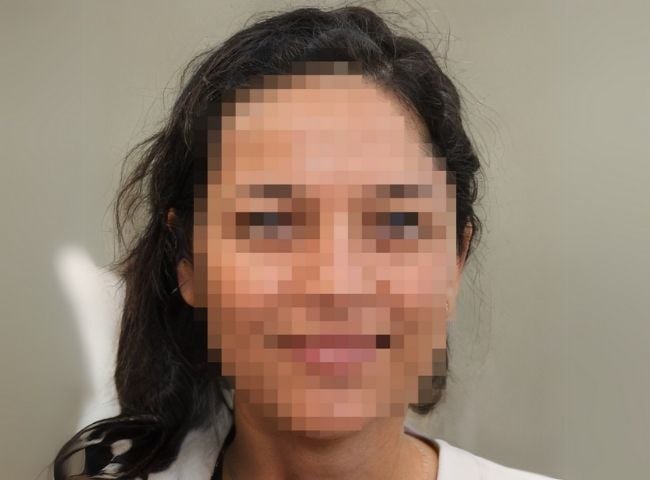Meet Kay

Kay's story
Electrolysis Support Fund recipient
Kay (she/her) is an Indigenous trans woman currently experiencing homelessness. After crashing her car in a state she doesn’t reside in, it has become incredibly difficult for her to get to workl when work is even possible. Kay earns a living as an exotic dancer, a job where she has to pay to work each shift, and where income is unpredictable. “The economy is really bad,” she shares, “and it’s not uncommon to leave with negative dollars.”
Her job is not only financially unstable, it’s also dangerous. As a pre-op trans woman, Kay lives with the constant fear that if clients or managers discover her gender identity, she could face violence or be fired. “Best case scenario, I’d lose my job. Worst case, I’d be physically harmed,” she says.
Kay is desperate for bottom surgery—not only for her mental health and well-being, but to be able to work safely and more consistently. In order to have her surgery covered by Medicaid, she must undergo hair removal, which Medicaid does not cover. Without another source of income, paying out of pocket is impossible.
“If I got this, it would quite literally be saving my life,” Kay says. Access to hair removal is the key to unlocking medically necessary surgery and the chance to live a safer, more stable, and more authentic life.
Kay's timeline
-
Award Granted
April 15, 2025
Kay was awarded a grant toward permanent hair removal!
About Hair Removal: Femme Award
On average, it costs $2,300+ for Kay's care.
- What is it?
- Before care
- After care
What is it?
Point of Pride provides grants to trans femme people seeking hair removal on their face, neck, or an area of the body in preparation for bottom surgery.
What is life like for a person who needs this care?
For trans femme folks, particularly trans femmes of color, access to facial hair removal often equates to safety against anti-trans violence or discrimination. It's common for applicants to note issues with employment and public safety, particularly if their facial hair is dark or thick. Electrolysis and laser hair removal services are often deemed cosmetic and therefore not covered by health insurance plans.
What is the impact of this care on the recipient’s life?
Access to hair removal often leads to a more positive emotional well-being, increased confidence, increased safety when in public, and better opportunities at employment and more.
Your support funds healthcare that's
life-changing. Life-saving. Life-giving.